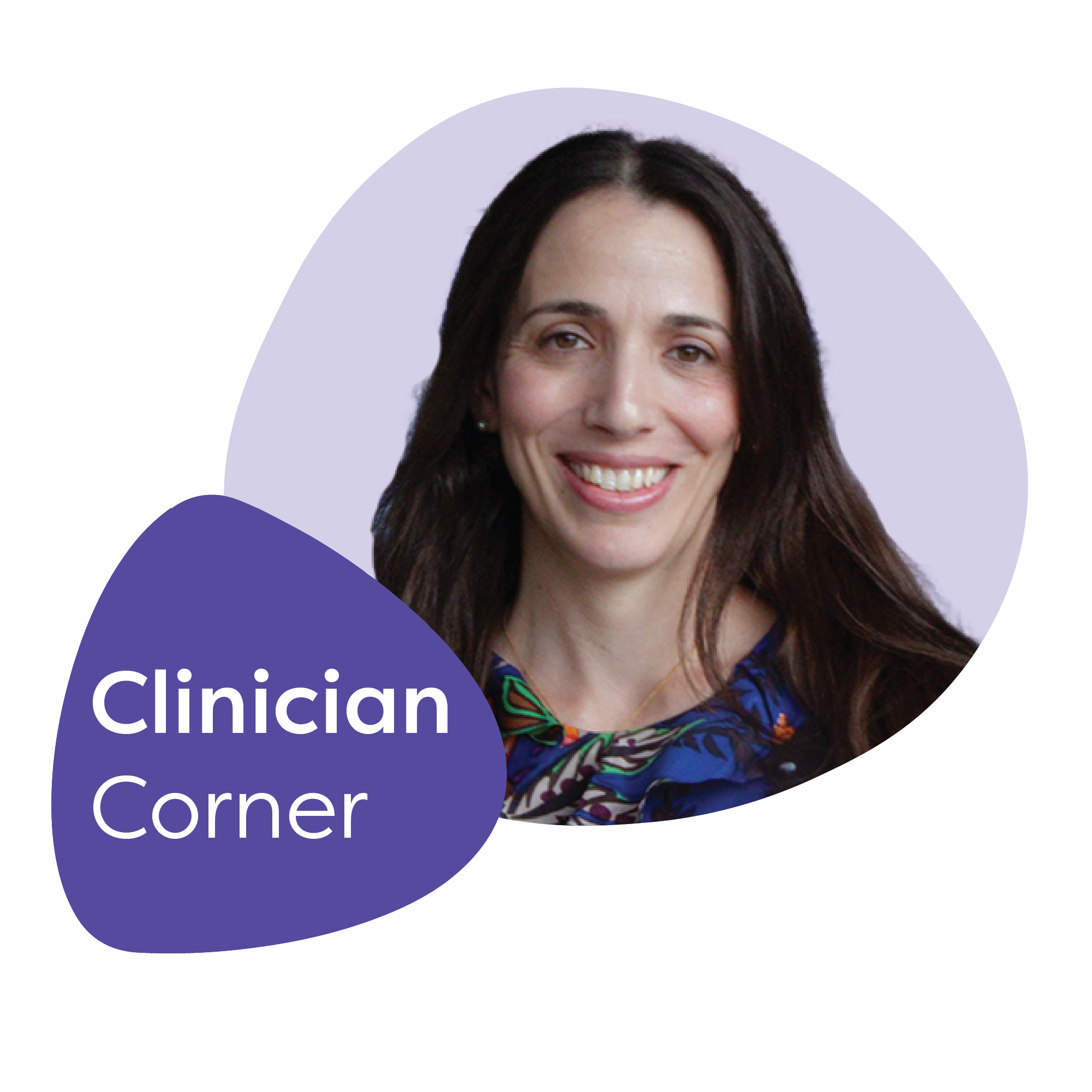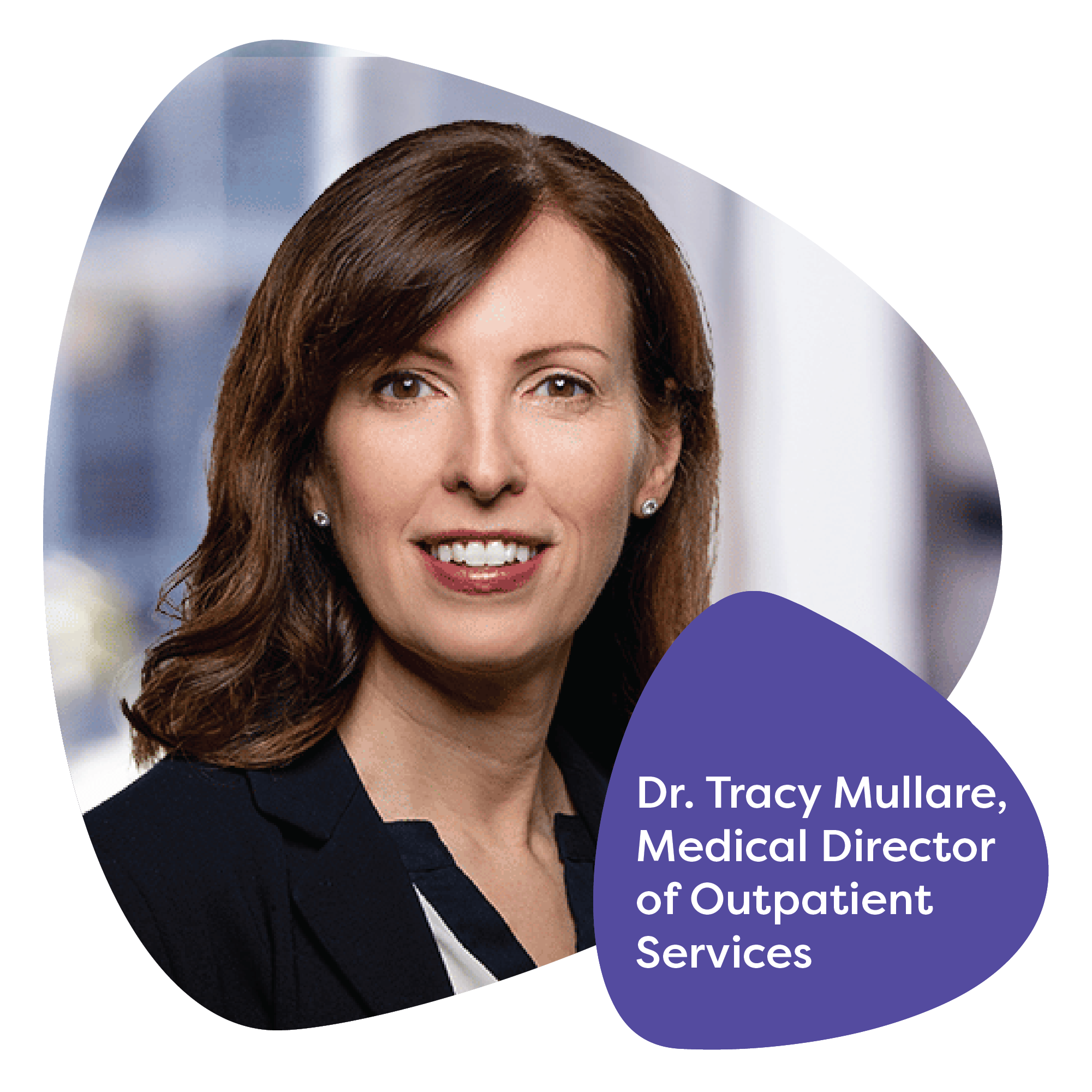Iris clinicians are at the heart of what makes our organization such a special place to work. That’s why we’re turning the spotlight on the amazing work they’re doing every day. This month, we’re sitting down to talk with Dr. Sophie Feller.
Q. How did you find Iris and decide you wanted to be an Iris provider?
A. I was looking at different telehealth companies and Iris was one of the top companies that popped up. I kept seeing the name and I became more curious. I looked at the website and then I had the opportunity to interview.
It felt like a very organic process. I had heard only good things about Iris leading up to my interview and that has only continued to be born out – kind of an amazing place to work.
Q. How does telehealth compare to in-person care?
A. In some ways it’s incomparable in the sense that it is very different, but I don’t think different means that it’s qualitatively any better or worse. I’ve found that I am just as able to connect with patients via telehealth as I am in person.
There are certainly some things that are different. For example, you don’t have as many physical cues sometimes because you can’t necessarily see the person’s whole body – things like that at times are noticeable.
Overall, I’ve found it remarkable how easy it is to connect with people by telehealth and how receptive people are to telehealth as a platform and as a way to interact with a provider.
Q. How do you foster connection with patients virtually?
A. I connect with patients the same way I would in person, honestly. I work in an emergency room setting mostly with people who are in crisis.
Oftentimes I foster connection by trying to present how I actually feel, which is calm and wanting to be present for the person. That comes across more than I would’ve expected – just as it might in person.
How one presents oneself, listening, and being empathetic and reflective – all of those things are very human, and they don’t change that much between telehealth and in person.
I try to stay true to myself and I found that I’m able to connect just as well by telehealth.
Q. As a healthcare professional, how do you manage work-life balance?
A. I think the most important thing is to handle work-life balance with intention. I am very intentional about the time I have away from work and how I want to spend it. When I am at work, I feel fully present and engaged. And when I am not at work, I do as much as I can to disconnect and be present in the other parts of my life.
I have times that I set aside to exercise, and I am always making time to be outside and to spend time with loved ones, friends, and family. For me, the most important ingredient is being intentional about having time away from work and using it in ways that help me feel balanced.
Q. What is the most rewarding part of your job?
A. The most rewarding part is, at Iris, we’re serving people who really need our help. We can facilitate psychiatric care to settings where at times people might not otherwise be able to receive care. We’re breaking down some of those barriers and making care accessible.
Connecting with patients is always the most rewarding and meaningful – and families when I have the opportunity to do that – which is actually quite frequently.
It’s also rewarding to have amazing colleagues and to feel so supported — that is very restorative and motivating for me to feel so energized by my colleagues.
Q. What do you love about working with Iris?
A. I’ve really found my professional home with Iris, and in large part that’s due to the people who work at the company. For example, overnight we have telehealth care coordinators who help us to navigate administrative issues with the health systems where we’re seeing patients and those people have become colleagues and friends.
For example, one of them I recently picked up from the airport and drove her and her family to their hotel because they were visiting the city where I live, and we had lunch. It has been amazing how much, not only I’ve been able to connect with patients, but also with colleagues in a virtual environment.
I feel like overnight we’ve become a kind of little family and we have gotten to know each other. Because there’s a smaller staff onsite at the hospitals overnight, I also feel like I’ve gotten to know some of the staff at the hospital.
It does feel very collegial, very friendly, and I feel very happy.
Q. Why do you think telehealth is important to the future of mental healthcare?
A. Telepsychiatry is the now of behavioral health care. It is the future, but I also think we need it now and we need more of it. There are so many barriers to people accessing mental health care and getting to a place where there could be an appointment.
Transportation, cost – there are so many reasons that people are unable to access care and I think for many people telehealth eliminates many of those barriers. I think the more telehealth that we can do, the better because we’re giving care to people who might not otherwise get it.
Q. What advice would you give someone new to telehealth?
A. Embrace it! Let go of any preconceived notions that you might have about what it is or what it isn’t because I never thought I would feel so connected to my colleagues with telehealth.
I’ve had the opportunity to meet colleagues in person and that has been hugely rewarding. I incorrectly assumed I would feel more isolated, and I don’t feel isolated at all. I feel very connected.
In terms of patient care, I would encourage anyone considering telehealth to leave space for the idea that it is just as possible to connect with people in a virtual environment as it is in person, because that’s certainly what I found.
Those interactions can still be really profound and really meaningful.
At Iris, we believe our providers should be respected, valued, and applauded for the work they do, and we couldn’t be more proud to say, “thank you” to our very own Dr. Feller. If you’d like to learn more about working for Iris Telehealth, contact us today.


